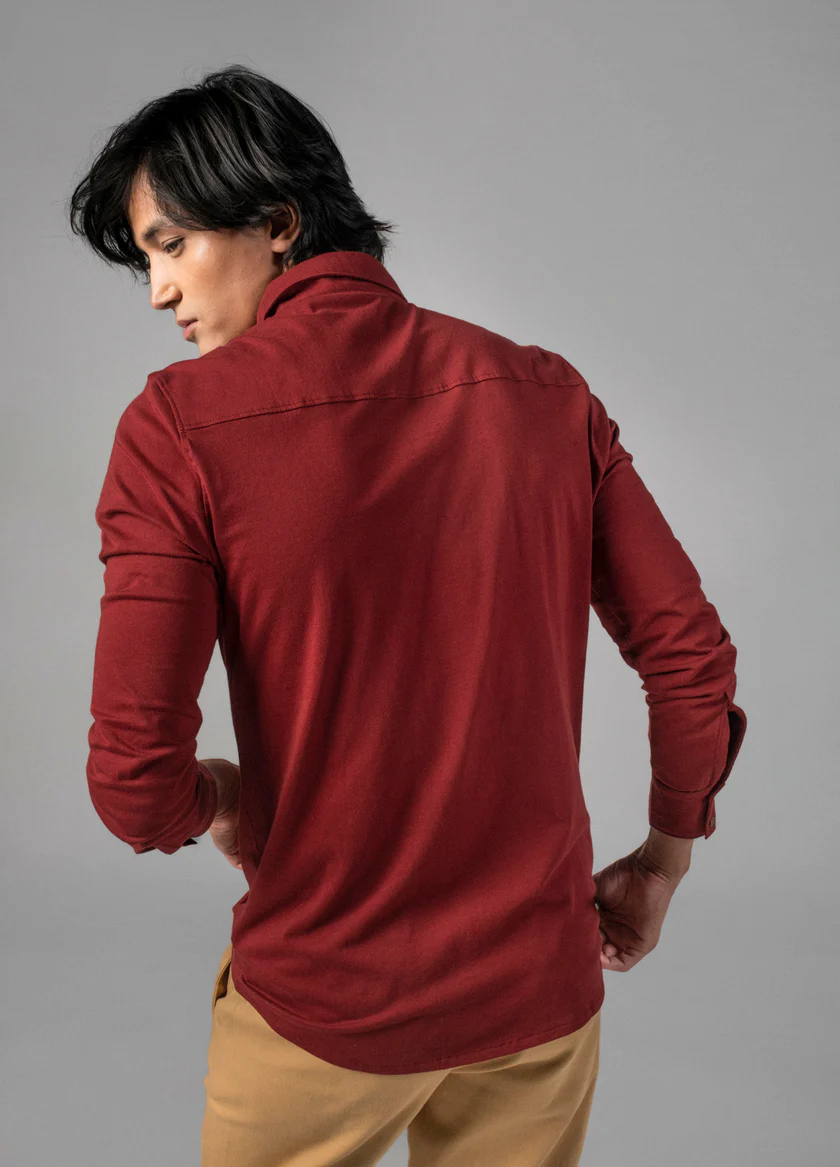Syrah Knit Shirt
₹2,799.0
WHAT’S BETTER:
FIT:
MODEL: The model is wearing a size M. Height 5ft 11in/180cm
COLOUR: Syrah red
MATERIAL: 100% Organic Cotton, Single Jersey
SUSTAINABILITY: Organic, Vegan, and Fair Trade
- Description
- Additional information
- Reviews (0)
- Q & A
- Sustainability Remark
- More Offers
- Store Policies
- Inquiries
| Color | Syrah red |
|---|---|
| Material | 100% Organic Cotton, Single Jersey |
| Fit | Slim fit, point collar, long sleeves with buttoned cuffs, coconut shell buttons |
You must be logged in to post a review.
Q & A
Organic and eco-friendly garments can contribute to sustainability in several ways:
Reduced environmental impact: Organic cotton is grown without the use of synthetic pesticides and fertilizers, which reduces the negative impact on soil, water, and air quality. Similarly, eco-friendly materials such as recycled polyester and Tencel use fewer resources and have a lower carbon footprint than traditional fabrics.
Social responsibility: Organic farming practices can benefit the health and wellbeing of farmers and their communities by reducing their exposure to harmful chemicals. Additionally, many sustainable fashion brands prioritize fair labor practices, including safe working conditions and fair wages.
Circular economy: Sustainable fashion brands often prioritize circular economy principles by using recycled materials, designing garments to be easily recycled, and encouraging consumers to donate or recycle garments at the end of their lifecycle.
However, there are also some challenges associated with the sustainability of organic and eco-friendly garments. For example:
Cost: Organic and eco-friendly materials can be more expensive to produce, which can result in higher prices for consumers.
Limited availability: While the demand for sustainable fashion is growing, the availability of organic and eco-friendly materials can be limited, which can make it challenging for sustainable fashion brands to scale their production.
Consumer behavior: Despite the growing demand for sustainable fashion, many consumers still prioritize low prices and trendy designs over sustainability. This can make it challenging for sustainable fashion brands to compete with fast fashion brands that prioritize low prices and rapid turnover.
Overall, while organic and eco-friendly garments can contribute to sustainability, there are also some challenges that need to be addressed to ensure that sustainable fashion becomes more mainstream and accessible to a wider audience.
General Inquiries
There are no inquiries yet.





















Reviews
There are no reviews yet.